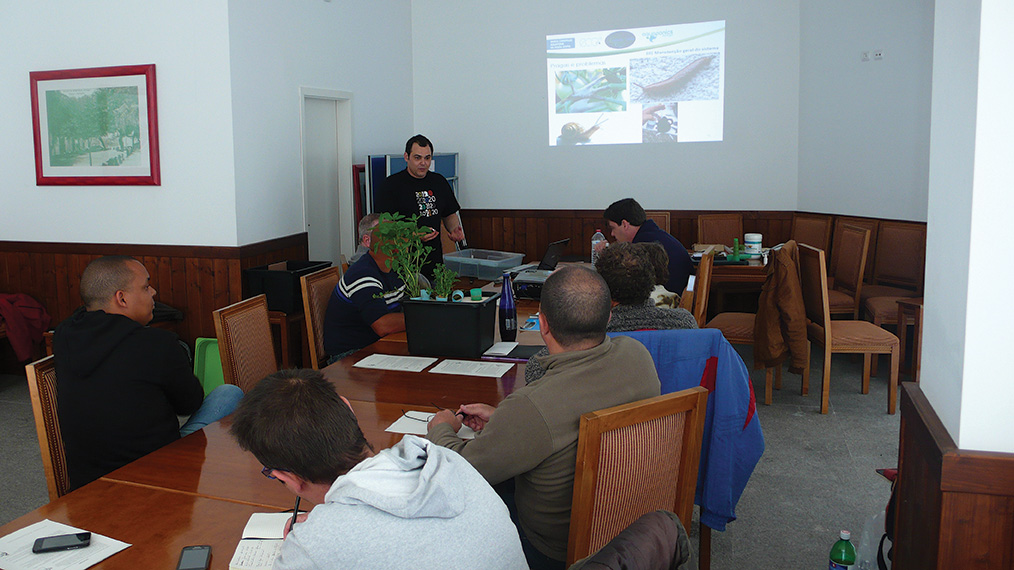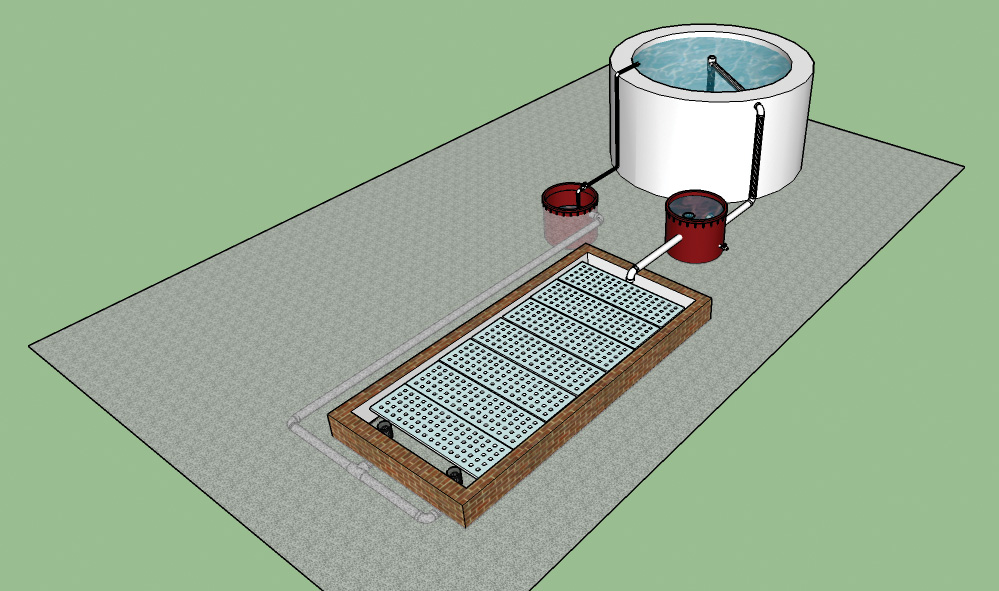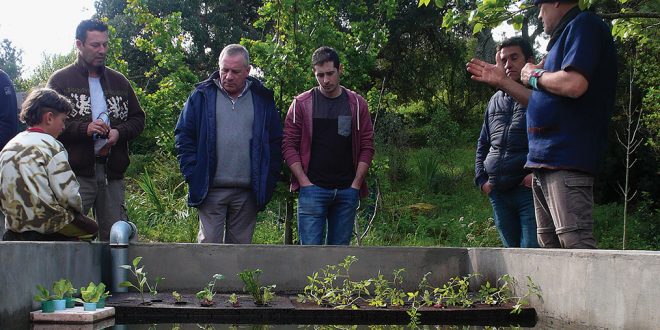Hydroponics + Aquaculture = Aquaponics. The first ECO123 workshop took place over a long weekend in Caldas de Monchique and was attended by twelve participants from all over Portugal. The trainers, João Cotter from Lisbon and João Vidal Lemos from Aveiro, started with a short theoretical presentation in the hotel and then all the participants moved from the seminar room to the garden. There, they inaugurated the two-by-five-metre plant pond. The first lettuce, courgette, tomato and melon seedlings were placed in the water in small baskets. The first fish from local waters were four small largemouth bass (achigã) that were released into the round water tank.

Aquaponics is a farming system that uses a closed biological water and nutritional cycle. The excrement from the fish is channelled to the plants, which need it as natural fertiliser. Four tanks are used for this purpose: a pond for the fish, an intermediate tank with a mechanical filter for eliminating the natural solids, the plant pond, and a tank with the biological filter for separating nitrogen with a small water pump, which pumps the water that has been cleaned by the plants back to the fish tank.

There was a lot of interest shown by those taking part, and many questions were raised. The discussions focused on both commercial and biological issues. However, the main question was how to give the plants active protection if they were infested by pests. João Lemos, who has been feeding himself through aquaponics for five years, clearly explained what reactions could occur if the vegetables growing in the water tank were sprayed with pesticides or herbicides, for example. The whole system, including all the fish, would be quickly destroyed. Aquaponics is based on a natural balance, in terms of the pH value, as well as nitrates and nitrites, he said, adding that this requires daily work with fish and plants. An exchange of experiences and a further workshop for advanced participants are planned for next spring.
Author: Uwe Heitkamp | Photos: João Vidal Lemos
 Eco123 Revista da Economia e Ecologia
Eco123 Revista da Economia e Ecologia


